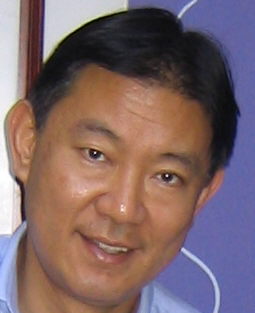|
| Biography |
| |
 Born in 1959, married with one daughter (10y/o).
Born in 1959, married with one daughter (10y/o).
Graduated from School of Medicine, Keio University (MD) in 1984 and trained as neurologist.
Two Master's degrees from the Harvard School of Public Health (MPH in 1999 & MSc in 2000).
PhD for public health from Keio University in 1996.
Professional Career at the Ministry of Health, Labour & Welfare for 22 years covering mental health, environmental health, food safety, international health, ageing & health, health research policy.
Worked for the World Health Organization as Executive Director for Health Technology and Pharmaceuticals from1998 to 2002.
Worked also for the Prefectural Government in Tochigi as Health Secretary.
Since 2005, served as Director, R&D Promotion for Innovative Pharmaceuticals and Medical Devices.
|
| |
|
|
| |
| Abstract |
| |
|
Life Sciences Research Responding to Challenges Faced by the Japanese Society |
|
|
|
Goverment sponsored life sciences research (approx. USD 3 billion) is identified as one of the 4 priority projects of the National Science & Technology Strategy, which in turn is expected to lead to industrial corner stone for the 21st century.
This trand is partially responsible for increasing % of the Japanese contributors to major international scientific journals in basic sciences such as "Sciences" and "Nature", which contrasts to scarcity of the Japanese contributors to clinical journals such as "Lancet" and "The New England Journal of Medicine". We belive that this clearly demonstrates the need for the translational research which brdges basic sciences and clinical trials/application.
As for the business model in developing life sciences seeds, much of the pantentees in life sciences could be found in pharmaceutical companies in Japan, whereas their equivalents are seen in venture companies or university labs in US.
Life scinecs research is expected to assist controling health care expenditure (approx. USD 250 billion) by introducing less-aggressive or ultra-early medical procedures.
Currently, Japan has the most graying population profile (LEs are 79 y/o for male, 86 y/o for female). Life sciences research is greatly improving their QOLs by providing tools to cope with their disabilities.
Japan also has one of the lowest fertility rate in the world (TFR 1.29). Life sciences can give us weapons to tackle probl;ems related to infertility
Life sciences research, thus, can help address many issues faced by the modern Japanese society and will bring seeds for its industrial competition. |
|
| |
|